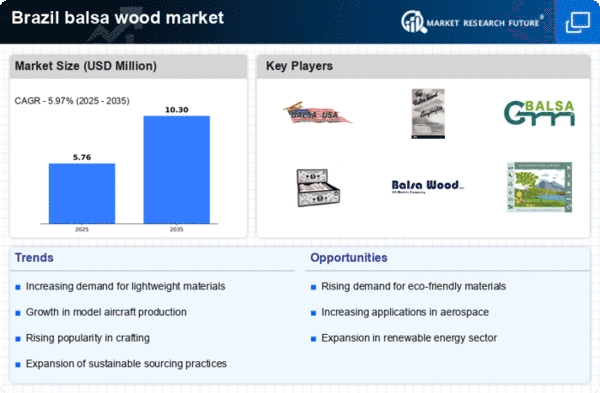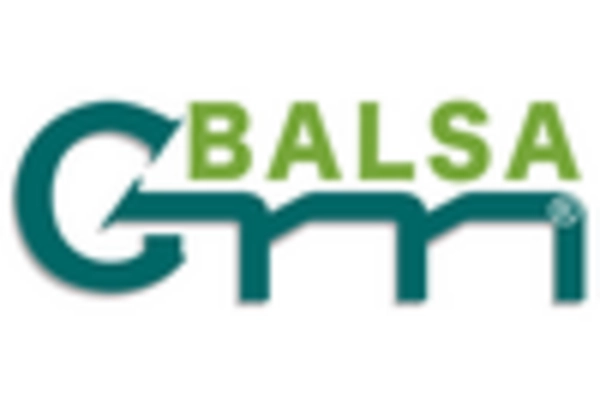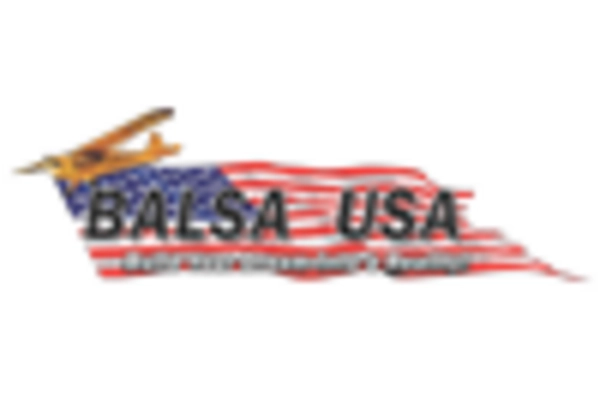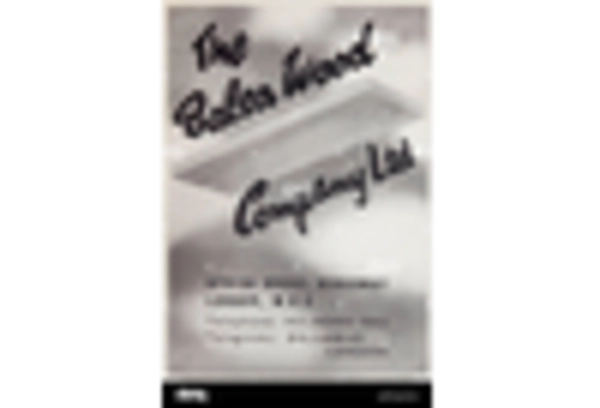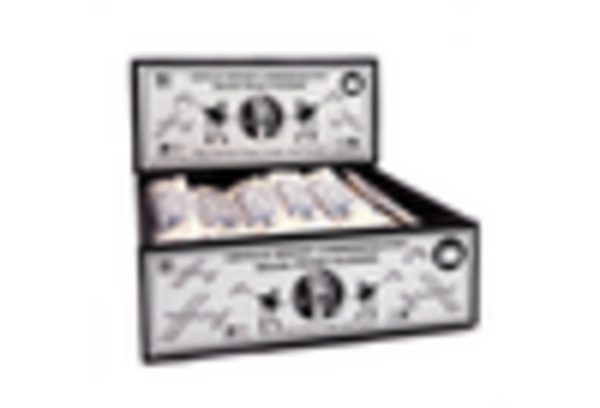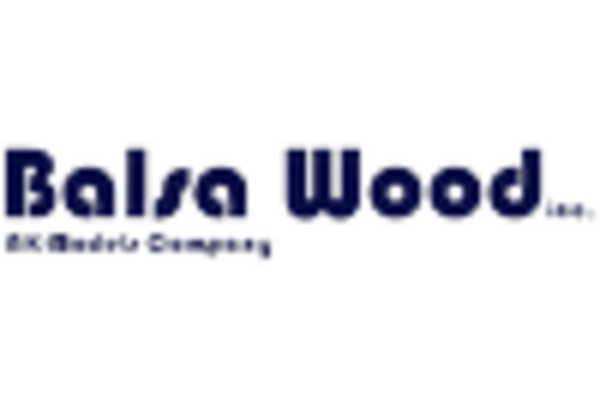The balsa wood market in Brazil is characterized by a competitive landscape that is increasingly shaped by innovation, sustainability, and strategic partnerships. Key players such as Balsa USA (US), Balsa Wood Company (US), and Balsa Composites (US) are actively pursuing strategies that emphasize product differentiation and market expansion. Balsa USA (US), for instance, has focused on enhancing its supply chain efficiency while investing in sustainable sourcing practices, which appears to resonate well with environmentally conscious consumers. Meanwhile, Balsa Wood Company (US) has been leveraging digital transformation to optimize its operations, thereby improving customer engagement and operational efficiency. Collectively, these strategies contribute to a dynamic competitive environment where adaptability and responsiveness to market demands are paramount.In terms of business tactics, companies are increasingly localizing manufacturing to reduce lead times and enhance supply chain resilience. This approach is particularly relevant in a moderately fragmented market where smaller players also seek to carve out niches. The competitive structure is influenced by the collective actions of these key players, who are not only competing on product quality but also on the sustainability of their practices and the efficiency of their supply chains.
In October Balsa Composites (US) announced a strategic partnership with a leading technology firm to develop advanced composite materials that incorporate balsa wood. This collaboration is expected to enhance product offerings and cater to the growing demand for lightweight, high-performance materials in various industries, including aerospace and automotive. The strategic importance of this move lies in its potential to position Balsa Composites (US) as a frontrunner in innovation within the balsa wood sector, thereby attracting new customers and markets.
In September Balsa Wood International (US) launched a new line of eco-friendly balsa wood products aimed at the craft and hobby market. This initiative not only aligns with current consumer trends favoring sustainable products but also reflects a broader industry shift towards environmentally responsible manufacturing practices. The introduction of these products could significantly enhance Balsa Wood International's (US) market share and brand reputation among eco-conscious consumers.
In August Balsa Wood Supply (US) expanded its distribution network across Brazil, establishing new partnerships with local retailers. This strategic move is likely to improve accessibility for customers and strengthen the company's market presence. By enhancing its distribution capabilities, Balsa Wood Supply (US) positions itself to better meet the growing demand for balsa wood products in various sectors, including model building and construction.
As of November the competitive trends in the balsa wood market are increasingly defined by digitalization, sustainability, and the integration of advanced technologies. Strategic alliances are becoming more prevalent, allowing companies to leverage each other's strengths and enhance their market offerings. Looking ahead, it is anticipated that competitive differentiation will evolve, shifting from traditional price-based competition to a focus on innovation, technological advancements, and supply chain reliability. This transition underscores the importance of adaptability and forward-thinking strategies in maintaining a competitive edge in the balsa wood market.


